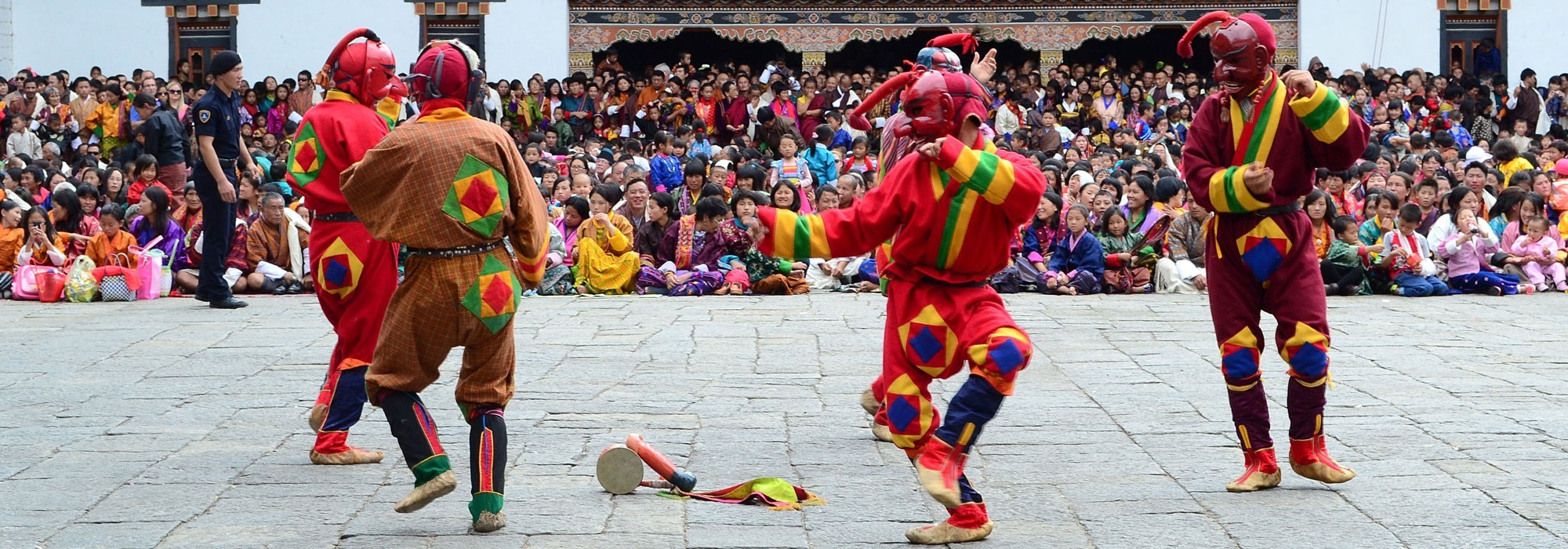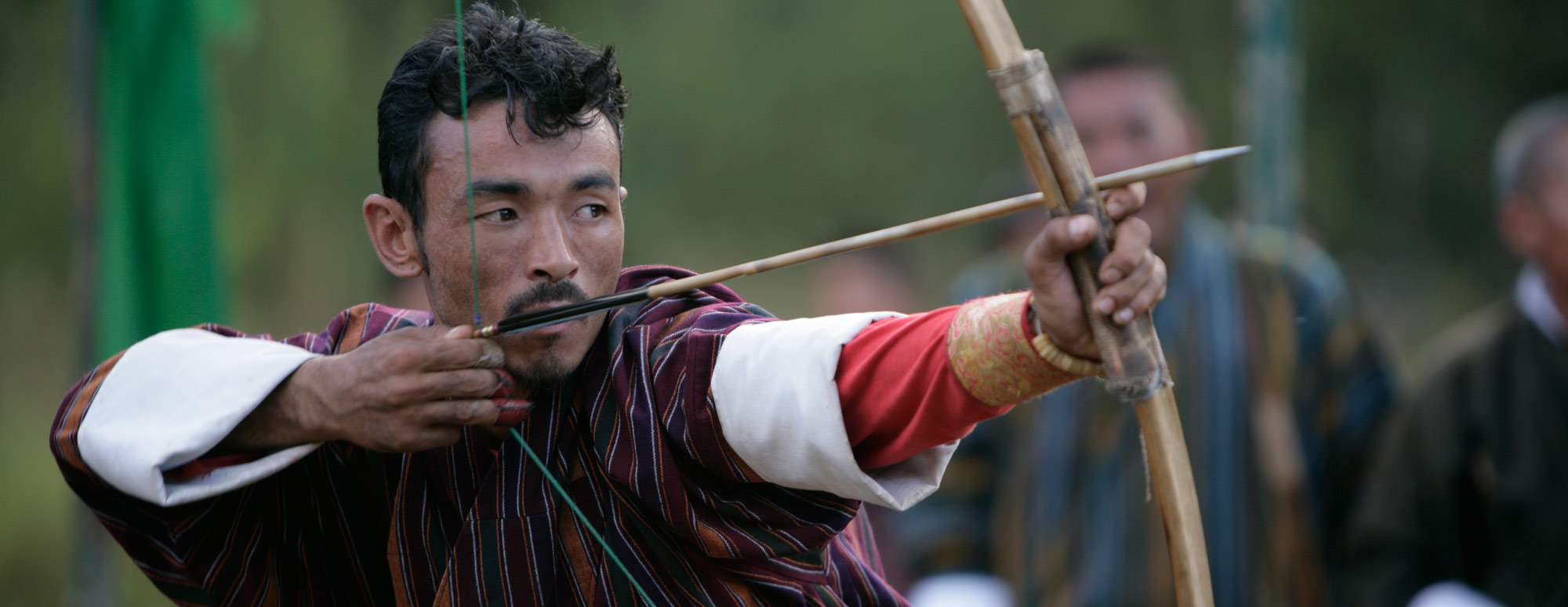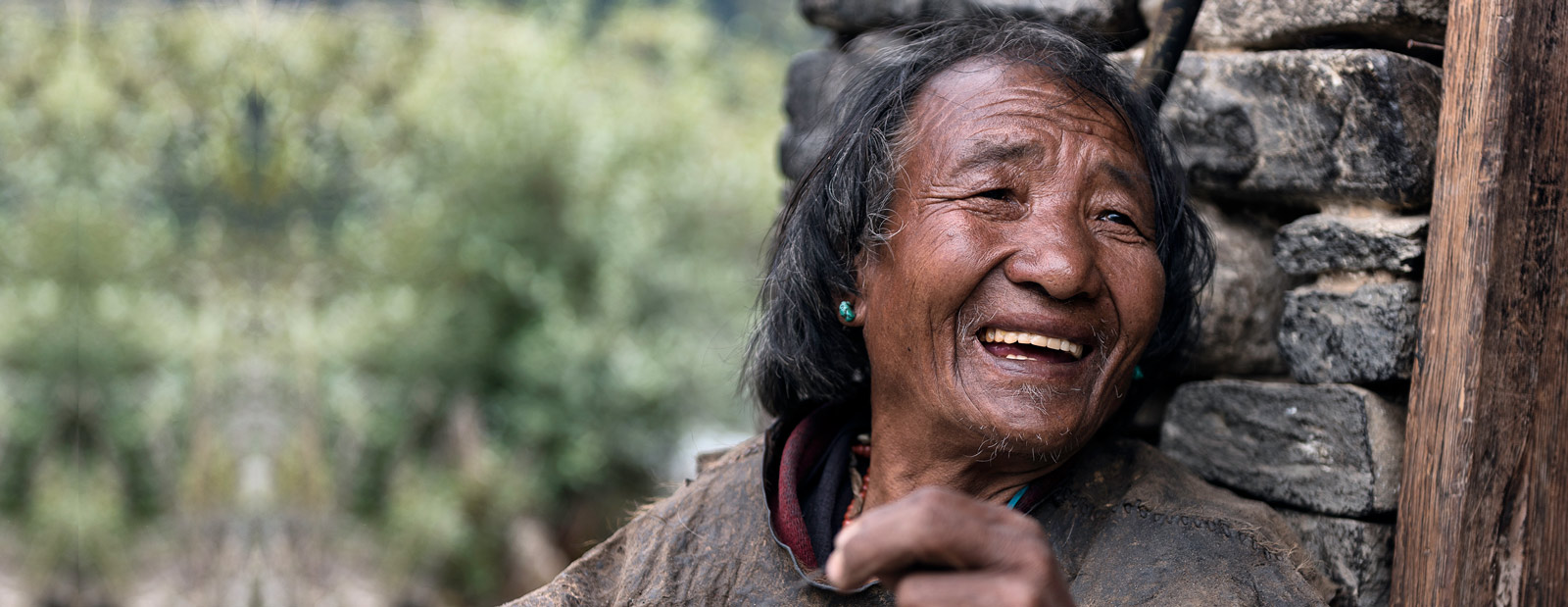BHUTAN
The Buddhist kingdom of Bhutan lies along the lofty ridges of the eastern Himalayas, bordered by the world’s strongest economic and demographic giants of China to the North and northwest and India to the east, south and southwest. With an area of 38,394 km2, comparable to Switzerland in both size and landscape, Bhutan is home to numerous beautiful valleys with pristine environment, Buddhism, about 800,000 Bhutanese and Gross National Happiness that make the country a unique destination.
NATURAL BEAUTY
Bhutanese have an inherent affinity for the natural environment, coupled with the Buddhist values of empathy and compassion, this principle is most prominent in our development policies and our interaction with the nature, making us a pioneer in environment protection. Our natural environment is a key component of our heritage and therefore the constitution mandates that 60% of Bhutan be covered in natural forest for all time. It is also the mighty Himalayas that created natural boundaries that protected Bhutan from rest of the world and left blissfully untouched for a long period of time.

BUDDHISM
The history of Bhutan starts with the arrival of Buddhism in the 7th Century, little to none is known about the state of the country before that. Fast-forwarding to the 21-century, Bhutan is now the last bastion of Buddhism, popularly Vajrayana Buddhism. Even though Bhutan is largely a Buddhist nation, there are small pockets of communities that practice other religion without any hindrance and religious tension. As you travel through Bhutan, you will come across many temples, monasteries and festivals that were built and created many centuries ago in honor of Buddhism. Buddhist values exude from the very fabric of our identity.

WE THE PEOPLE
Bhutanese are a group of deeply spiritual people strongly rooted in belief and faith in “karma”. The fabric of our culture and traditions are drawn from Buddhist philosophy and are the essence of what makes Bhutan unique. The Kingdom is sparsely populated with 0.8 million people. The three main ethnic groups constitute Bhutan’s population; the Sharchopas, who are held to be indigenous inhabitants, the Ngalogpas whose descendent is traced to neighboring Tibet/Mongolia and the Lhotshampas, people of Nepalese origin. The inhabitants of Bhutan are gracious gentle and very hospitable, they are peace loving and possess lively sense of humor.

HAPPINESS IS A PLACE
Bhutan is home to Gross National Happiness, a development philosophy that provides a paradigm shift – that is, it aims to balance material and non-material values with the conviction that humans ultimately want to be happy. As the planet is being put under much stress threatening our very survival and all the changes that are taking place, Bhutan is transitioning from a traditional state to a modern state. With it, Bhutan also faces problems that are of the modern and varied kind. Despite all the hurdles, Bhutan hopes to address and combat them through the all-inclusive model of Gross National Happiness to achieve a balanced development and our eco-happiness.

